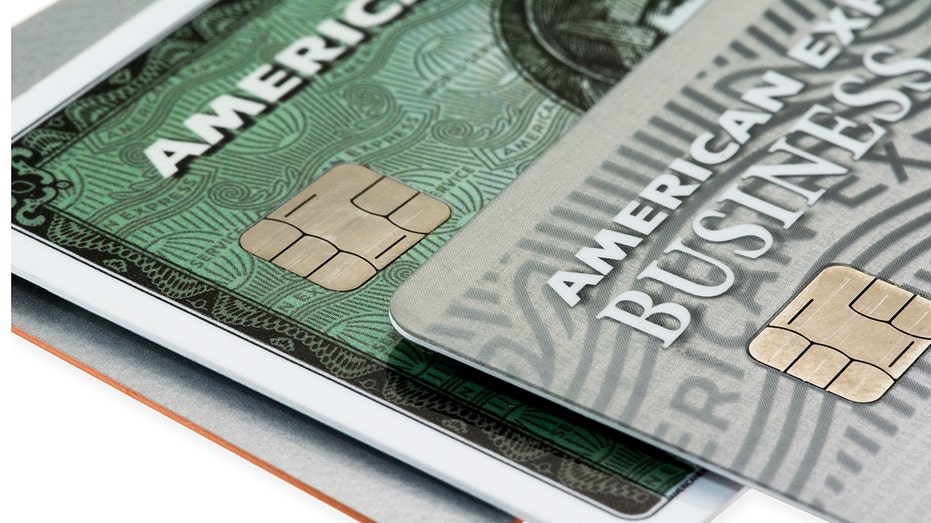Borrower, beware: credit-card fraud attempts rise during the coronavirus crisis
Phishing attacks are rising, too
Get all the latest news on coronavirus and more delivered daily to your inbox. Sign up here.
Fraudsters are increasingly using pilfered credit-card numbers and phishing attacks to prey on overwhelmed consumers and banks during the coronavirus pandemic.
There has been a big jump in attempted credit- and debit-card fraud since coronavirus shut down the U.S. economy earlier this year, according to Fidelity National Information Services Inc., known as FIS, which assists about 3,200 U.S. banks with fraud monitoring. The dollar volume of attempted fraudulent transactions rose 35% in April from a year earlier, FIS said, a trend that appears to be continuing in May.
Most of the fraudulent transactions were caught before they hit cardholders' accounts, FIS said, but the spike in attempts presents another challenge for consumers and their lenders muddling through the worst economic crisis since the Great Depression.

A person working on a laptop in North Andover, Mass. (AP Photo/Elise Amendola, File)
Credit-card purchases have fallen over the past two months, and millions of out-of-work borrowers have stopped making their monthly payments. A rise in successful fraud attempts could lead to higher losses for card issuers and, ultimately, higher costs for consumers.
"This is going to hit everyone very hard," said Krista Tedder, head of payments at Javelin Strategy & Research, which advises card issuers on security issues.
Fraud is a perennial problem for banks. Fraud losses -- including losses linked to credit and debit cards -- cost banks, merchants and, in some cases, cardholders $16.9 billion last year, up 15% from a year prior and the highest level since 2013, according to Javelin.
Banks have increased their fraud projections for 2020, according to Aite Group, a research and consulting firm.
CYBERATTACKERS MIMIC GOVERNMENT WEBSITES IN PHISHING EMAILS USING TEMPLATES
A sharp decline in travel and spending at bricks-and-mortar locations has shifted much of the fraud to the internet at large card issuers including Wells Fargo & Co., Bank of America Corp. and Synchrony Financial, according to people familiar with the matter.

American Express and other credit card companies have converted to EMV cards with computer chips. / iStock
Fraudsters are employing a number of tactics to dupe unsuspecting consumers and banks.
They are generating random card numbers until they stumble upon legitimate accounts and attempting more fraudulent purchases with card numbers stolen in pre-pandemic hacks, said Eric Kraus, vice president of fraud at FIS.
Phishing attacks -- the use of phone calls, emails or texts to trick customers into handing over their credentials -- are rising, too, so much so that executives at one community bank were certain they had been hacked before learning that many of their cardholders had instead fallen victim to scams, Mr. Kraus said.
CORONAVIRUS SCAMS: A LOOK AT SCHEMES BUSTED BY THE FBI
Anton Hinton got a phone call in late April from someone claiming to represent JPMorgan Chase & Co. The caller, who knew Mr. Hinton's full name, email address and the last four digits of his account, said his debit-card number had been stolen and needed to be frozen.
The caller told Mr. Hinton to set up a digital wallet to make purchases until Chase could ship a new card to his home in Cleveland. While on the call, he got an email, ostensibly from Chase, with a one-time activation code to set up the digital wallet.
After he hung up, Mr. Hinton saw more than $300 in purchases had been made in Florida.

Person working on laptop with dark screens / iStock
Chase refunded the charges and sent Mr. Hinton a replacement card. "Scams typically increase during times of crisis, like pandemics and natural disasters," a spokesman said.
Banks often alert customers to fraud attempts, but getting customer-service representatives on the phone to remove charges and replace cards has been a challenge for some cardholders. Lenders have been flooded with calls from borrowers looking for a break on their monthly payments during the coronavirus shutdown.
FBI WARNS OF SCAMMERS TARGETING CORONAVIRUS FEARS
Capital One Financial Corp. texted and emailed Lisa Camillieri in late March to ask if she had tried to make a $1,279 purchase at a BMW dealership in Texas and a $1,344 purchase at a car-parts dealer in Florida. She hadn't, she replied, and the bank stopped the transactions.
Replacing her card hasn't been so easy. She called the bank several times and got an automated message warning of lengthy wait times.
A Capital One spokeswoman declined to comment.

iStock
Carolyn Mora was doing a routine check of her accounts in early April when she spotted five charges on her Citigroup Inc. credit card. The $232 in charges were made in Israel, where Ms. Mora, who lives in Pennsylvania, has never traveled. She was also charged $7 in foreign-transaction fees.
Ms. Mora said she called Citigroup several times and got automated messages telling her to call back later. She was hoping to get the pending charges canceled before they went through.
GET FOX BUSINESS ON THE GO BY CLICKING HERE
"We couldn't reach anybody for such a long time," she said. "We were trying every possible way."
Ms. Mora messaged the bank through its app and tweeted at the company. She was refunded about 10 days after she first spotted the charges.
CLICK HERE TO READ MORE ON FOX BUSINESS
A Citigroup spokeswoman said the charges went through due to a combination of factors, including their low dollar amount. "We regret any inconvenience this may have caused," she said.




















